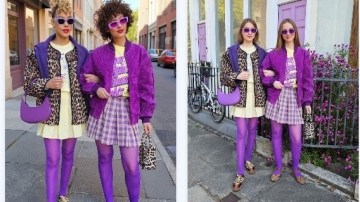Love.Life, a new holistic wellness center from the co-founder of Whole Foods, is creating a blueprint for a members-only, one-stop-shop longevity business.
“The general population that’s interested in wellness is going to multiple places [for care], which is not only inefficient, but it also creates hurdles [in their results],” Michael Robertson, Love.Life regional president, told Glossy. “We’re putting everything that can impact your longevity, your health span, and your performance under one roof.”
That includes functional medical care designed to replace your primary care physician, behavioral health provider, urgent care provider, physical therapist and just about every medical provider outside of emergency care. It also includes cutting-edge wellness therapies, fitness and mobility training, physical therapy, dieticians, a cafe and a spa, as well as a rigorous onboarding program that utilizes top-of-the-line longevity diagnostics.
The 45,000-square-foot flagship is based in L.A.’s coastal El Segundo neighborhood, close to affluent South Bay cities like Manhattan Beach and a moderate drive from wealthy L.A. enclaves like Santa Monica, Bel Air and Beverly Hills.
Launched in 2024 by John Mackey, the co-founder of the Whole Foods grocery chain, Love.Life is using its flagship to hone the business model for expansion.
“Our flagship is our testing ground,” Robertson said. “This model has never been done at this scale, … [and] we have built all our systems to scale, so we are ready to do that.”
Love.Life’s most popular offering is its recovery center, which leans into socializing with co-ed cold plunges, infrared and traditional saunas, steam rooms, red light beds, hyperbaric chambers, and lymphatic compression, among other features
Meanwhile, in-house doctors and care providers use advanced diagnostics mixed with Eastern and Western practices. Love.Life utilizes technology from longevity-focused companies like Dexascan for bone density imaging and Prenuvo for full-body MRI imaging, plus blood and microbiome testing that collects more biomarkers than traditionally analyzed by one’s PCP. The club does not offer aesthetic services, like filler or Botox.
Membership cost is on a sliding scale: A silver package starts at $650 per month, and includes medical care services but not a fitness membership; $995 a month secures the gold package, which includes medical and fitness; and a $2,200 platinum membership also includes several add-ons like personal training and more extensive health testing. Love-Life does not currently accept insurance. Each membership comes with monthly credits for booking specialists and care providers.
But despite its swanky appearance, the company plans to reduce costs through scale. The plan is not to be a health club for the 1%; it’s to be accessible for many Americans. This goal is not unlike the trajectory of Whole Foods, which started as a natural food store in Texas in 1980 and grew into the organic grocery behemoth currently owned by Amazon.
“A thousand dollars a month is not a small amount for most households in Los Angeles,” Robertson said. “I’m very aware of that, and we’re very in tune with making sure this is as affordable as possible [while we] try to figure out how to drive the prices down as we find efficiencies.”
Love.Life has found a clientele that is frustrated with the medical system and doctors that prescribe medications over lifestyle changes or advanced testing. “We’re seeing [a lot of] people who have had a negative health experience, meaning maybe they were told that they’re pre-diabetic, maybe they’re having hormone issues,” he said. “There’s a lot of confusing information out there, and we are trying to be the source of truth.”
Doctors at Love.Life prescribe medications sparingly, instead focusing on diagnosing and reversing chronic issues through lifestyle, diet, exercise and wellness therapies, for example.
“People are curious about functional medicine [because] we handle things a little differently,” Robertson said.
Prior to joining Love.Life in 2022, Robertson spent 22 years at the iconic Beverly Hills hotel The Beverly Hilton, including 15 years as its manager. He told Glossy that retaining Love.Life’s clients rests on building community, feeling seen and seeing results.
“The traditional gym model is that they want your membership, but they don’t necessarily want you to come,” he said. “But we’re only successful when you come a lot. We want people here, both engaging with the community and using all of the offerings.”




